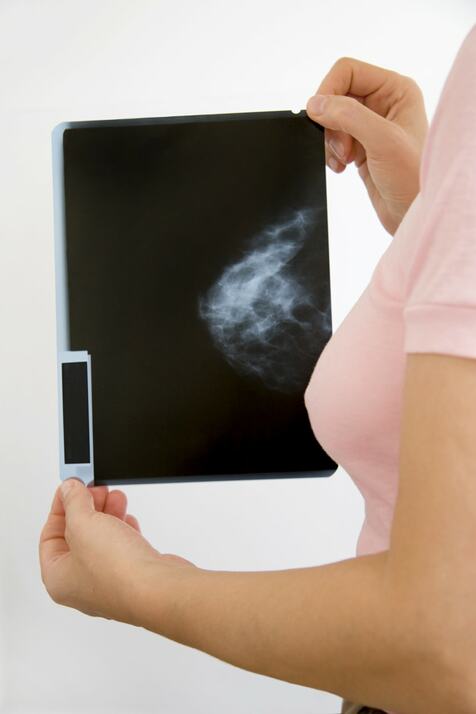|
Breasts are composed of glandular (milk glands and ducts), connective (fibrous tissue) and fat tissues. Breast density is calculated by comparing the amount of breast tissue in comparison to fat in the breast. Generally, dense breasts are composed of higher amounts of glandular and connective tissues and lower amounts of fatty breast tissue.
Age-related Density Physical examination or observation (size, shape, firmness, BMI or weight) cannot tell you about breast density and the only way to measure it is by using a mammogram. Age is a determining factor in breast density-younger we are, denser our breast is. As we grow old density decreases owing to declining estrogen levels which happens due to aging, all the more due to menopause. It’s also common to see individuals having dense breasts later in their adulthood too (almost 40% women above the age of 40 have dense breasts). It might be due to your genetic predisposition! There are two reasons to be concerned about if you have a dense breast:
Having dense breasts is nothing to be afraid of nor is it uncommon. It doesn’t guarantee a breast cancer in the future but only increases the risk of a cancer possibility. Important risk factors for a dense breast include age, medication, low BMI and genetics. Younger women have denser breast. Older a woman grows, less-denser her breasts become, and it might be due to medications such as hormone replacement therapy after menopause that increase breast density or the work of other medications as well. Genetics too plays a role here and women with dense breasts usually have a mom or grandma with a dense breast. Categorization The BI-RADS (Breast Imaging Reporting & Database Systems) assess breast density and classifies it into four groups:
Staying Healthy with Dense Breasts Getting a dense breast is not in our hands but all we can do is engage in activities that reduce our risk for breast cancer. Common lifestyle changes that can be implemented include:
It is better to compare results with the previous year’s results to better understand your risk. Women with a family history of breast cancer or dense breasts must talk to their physician and arrange for specialized programs that meets the requirements. Comments are closed.
|
AVOID FRAUD. EAT SMART.+91 7846 800 800
AuthorDietitian & Nutritionist Dr. Nafeesa Imteyaz. Archives
November 2022
Categories
All
Dr. Nafeesa's Blog @blogspot |
- Home
- Written Testimonials
- Consult
- Clinics
- Blogs
-
Diet & Nutrition
- Diabetes Reversal
- IVF IUI not needed for PCOS PCOD Infertility
-
Medical Nutrition
>
-
Disease & Conditions
>
- Infertility | PCOS
- Diabetes Mellitus
- Cholesterol
- Hypothyroid
- Kidney Problems
- Hypertension
- Cardiovascular Diseases
- Liver Diseases
- Gastro intestinal disorder
- Cancer
- Metabolic Disorders
- Orthopedic Disorders
- Eating Disorders
- Dietary Recall
- Weight Record Filled By Clients
- Online Payment Transaction Details
- Online Clients Weight Check Form
- Our Program Package Service Charges
- Weight Record 2017 Clients
- Measurements sent by Clients
- Terms & Conditions Of Payment
- Thanks. Your Form is Submitted
- Video Testimonials
- Lifestyle & Wellness
- Lifestyle & Wellness Blog
- Allergy & Intolerance
- Weight Loss / Gain
- Weight Loss / Slimming Blog
-
Disease & Conditions
>
- Life Cycle Nutrition >
- Sports Nutrition >
- Integrity in Nutrition
- Knowledge Centre
© COPYRIGHT 2022. ALL RIGHTS RESERVED. FRST HEALTHCARE PVT LTD.
Dr. Nafeesa Imteyaz of First Eat Right clinic, is the Best Dietitian Nutritionist in Bangalore. Best Dietitian Nutritionist in Pune. Best Dietitian Nutritionist in Hyderabad. Best Dietitian Nutritionist in Chennai. Best Dietitian Nutritionist in Mumbai. Best Dietitian Nutritionist in Delhi. Best Dietitian Nutritionist in Kolkata.


